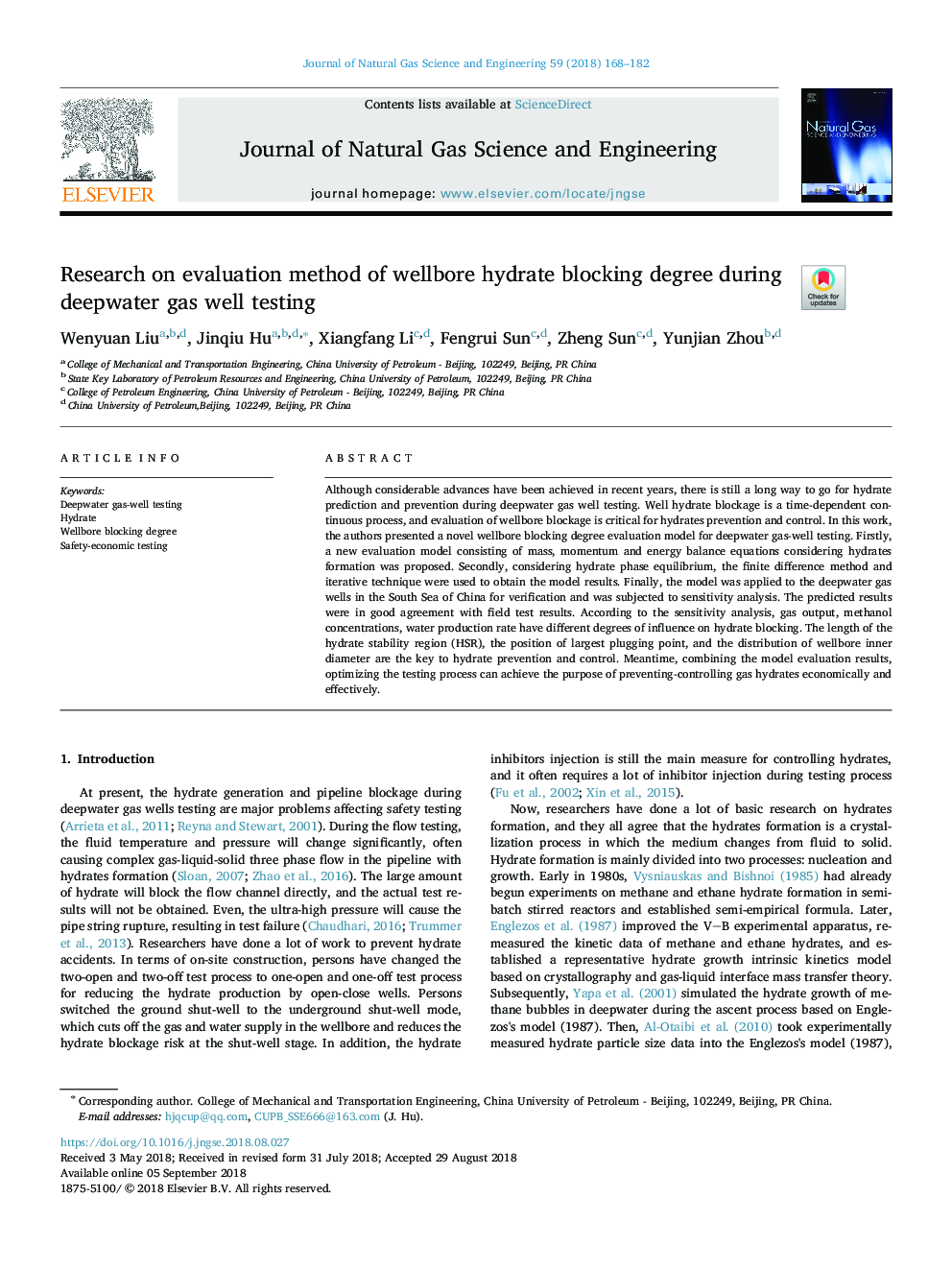| Article ID | Journal | Published Year | Pages | File Type |
|---|---|---|---|---|
| 10142710 | Journal of Natural Gas Science and Engineering | 2018 | 15 Pages |
Abstract
Although considerable advances have been achieved in recent years, there is still a long way to go for hydrate prediction and prevention during deepwater gas well testing. Well hydrate blockage is a time-dependent continuous process, and evaluation of wellbore blockage is critical for hydrates prevention and control. In this work, the authors presented a novel wellbore blocking degree evaluation model for deepwater gas-well testing. Firstly, a new evaluation model consisting of mass, momentum and energy balance equations considering hydrates formation was proposed. Secondly, considering hydrate phase equilibrium, the finite difference method and iterative technique were used to obtain the model results. Finally, the model was applied to the deepwater gas wells in the South Sea of China for verification and was subjected to sensitivity analysis. The predicted results were in good agreement with field test results. According to the sensitivity analysis, gas output, methanol concentrations, water production rate have different degrees of influence on hydrate blocking. The length of the hydrate stability region (HSR), the position of largest plugging point, and the distribution of wellbore inner diameter are the key to hydrate prevention and control. Meantime, combining the model evaluation results, optimizing the testing process can achieve the purpose of preventing-controlling gas hydrates economically and effectively.
Keywords
Related Topics
Physical Sciences and Engineering
Earth and Planetary Sciences
Earth and Planetary Sciences (General)
Authors
Wenyuan Liu, Jinqiu Hu, Xiangfang Li, Fengrui Sun, Zheng Sun, Yunjian Zhou,
